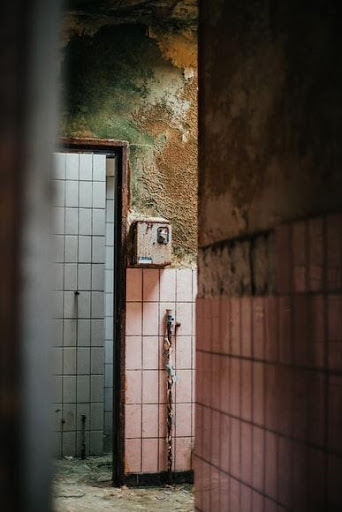Who Should Pay For Mold Removal In Rental Property?
 The question of who deals with mold removal in a rental property has been a matter of debate for quite some time. Where mold has been a long-standing problem, tenants have managed not only to get the landlord to pay for the mold removal but also for the health problems caused by mold.
The question of who deals with mold removal in a rental property has been a matter of debate for quite some time. Where mold has been a long-standing problem, tenants have managed not only to get the landlord to pay for the mold removal but also for the health problems caused by mold.
In other instances, renters often get the mold removed on their own accord, especially if it developed long after their tenancy began or water damage caused due to their own negligence. Regardless, the issue still remains and has been the bone of contention between many tenants and landlords.
In this article, we will take a look at the matter closely to examine who should pay for the mold in a rental unit.
Who Is Responsible for Mold Removal – Tenant or Landlord?
One major consideration to make when it comes to mold removal is when the mold develops. It is important to note that mold takes no more than 12 hours to start growing, and within 24 hours, the problem becomes a lot more prevalent. The longer you leave mold on your property, the more problematic it becomes.
If your property has drywall (which is the case for most houses and commercial buildings in the US), if you leave mold to be for more than a week, expect the spores to grow deep into the drywall as well. When this happens, you may have to pay for the wall replacement and repair as well (depending on the damage and type of mold).
There is no federal law that dictates who is responsible for mold. Instead, the decision relies simply on precedents set forth by the court over the years and, of course, ethics. Other than a few states, there are no mold standards, guidelines, or regulations for mold in indoor air that consider the tenant and landlord relation. These states include:
- California
- Indiana
- Maryland
- New Jersey, and
- Texas
The factors on which the court will decide who pays for extensive mold removal in rentals are discussed below.
- When The Mold Started Growing
If the landlord failed to disclose the existence of mold in the property at the time of the tenant’s inspection or viewing (provided mold was an issue at the time or there was water damage that could potentially lead to mold), the landlord could be held liable for mold removal and any health conditions that arise because of it.
On the other hand, if there was no mold at the time of handing over the property to the renter and mold develops while the property is under the direct care of the tenant, you will have to bear these costs. Of course, the cause of mold will also be considered.
- Cause of Mold
Whether the mold developed because of something the tenant did (or did not do in time) or because of an existing or underlying condition also dictates who will pay for removal and even for water damage restoration, if needed.
- State Laws
Despite the absence of any specific mold laws, landlords may be liable for a mold problem in the rental to provide the tenant a safe and livable environment – not to mention as an investment to ensure the integrity of their property.
State laws may also give landlords the option of deducting the mold removal amount from the tenant’s security deposit with cause and proof that the mold was, in fact, a result of the tenant’s activities or negligence. At the same time, tenants also have the right to withhold rent if the landlord fails to fix a serious mold problem (one that isn’t the tenant’s fault or responsibility).
It is important that tenants also consider their own activities and behavior and the chances that it may have led to the development of mold. For example, if the tenant willingly keeps the apartment shut and does not allow for ventilation in the property, creates humidity, or simply fails to maintain cleanliness, the court may decide that tenant should pay for mold removal.
Furthermore, any other damage caused to the property shall also be payable by the tenant. If the amount needed for mold restoration exceeds the renter’s security deposit, landlords may indicate the same to the tenant.
Specific Mold Clauses
Recently, real estate agents have started recommending that landlords include a specific clause about the development of mold in rentals and who shall be responsible for its removal. Currently, only the state of Tennessee has refuted said clause and does not recognize it as enforceable. However, HOAs also support this clause as it reduces the chance of clashes between tenants and renters.
As a landlord, you should consider investing in disaster restoration insurance, including mold removal, to ensure there is an easy way out when a problem ever arises. If the insurance provider believes that the mold is a direct result of the tenant’s activities, insurance providers will deal with the tenant on their own accord and make sure the tenant pays what’s due.
To prevent future liability, 911 Restoration of Rockland offers its inspection services that help you determine if there is a risk of mold in your property. If there is any water damage or excess humidity, we can help you address the issues and make sure that the tenant has no claim over you. Give us a call on (845) 210-5671 today to schedule an inspection by IICRC certified restoration experts or simply to learn more about the landlord vs. tenant relationship when it comes to mold!


